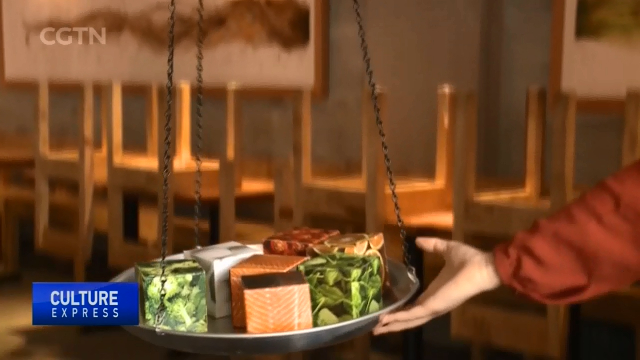
19:14, 06-Jul-2018
Edible Environmentalism: Making climate-friendly food choices
Updated
17:09, 09-Jul-2018
03:00

In San Francisco, there is a restaurant called The Perennial, where they're making food in different ways. It collaborates with a China-born food designer, Yunwen Tu, in culinary innovation. Mark Niu has more.
At San Francisco's Perennial Restaurant, Karen Leibowitz starts the process of making sourdough bread with a twist.
It uses a grain alternative to wheat called Kernza, which puts down deeper roots, meaning less tilling of the soil and less carbon released into the atmosphere.
KAREN LEIBOWITZ CO-OWNER, THE PERENNIAL "The problem with environmentalism, up to this point is that people see it as 'un-fun'. In many ways, talking about food and climate can sound like being on a diet. What we're saying, this is pleasurable, there's beauty, there's flavor."
One way The Perennial is making food environmentalism more palatable is by partnering with China-born Food Designer Yunwen Tu.
Tutu, as she's known, shows me her In the Balance project, which demonstrates how you need a lot of foods - oranges, tomatoes, broccoli, salmon, eggs, and an extra salmon - to surpass the amount of carbon dioxide emitted from cheese.
YUNWEN TU FOOD DESIGNER "How a lot of businesses produce food now is actually based on the customer's and consumer's needs. So if we help people learn about how to choose a better food, more sustainable way to eat food, we'll make a different decision for those businesses."
Tutu is even able to make use of The Perennial's old menus.
Combining the pulp with food waste, Tutu makes paper that can not only carry plantable seeds, but also be used to make postcards or business cards.
Tutu has taken her ideas to the streets of San Francisco, with her work having been displayed at food symposiums and museums.
She's also written the book Protein Fantasy, which showcases her designs for the future of food at a time when people will more easily be able to create it themselves.
This is a prototype for a strawberry that would squeeze out in a paste.
And for meat, Tutu thinks this shape would allow the consumer to grip it and savor it.
YUNWEN TU FOOD DESIGNER "This idea is inspired by Xiaolongbao, the little soup dumpling in China. The idea is the shape itself and how the Xiaolongbao wrap the pork inside it. So I was thinking if I can change the form, can I design a shape that people will eat it slower and with more different interaction, like smell it, lick it, instead of just put a bulk of meat in your mouth."
As future food production transforms and speeds up, Tutu says it's important to not only to think about convenience, but also how people will interact with food for both health and happiness. Mark Niu, CGTN, San Francisco.

SITEMAP
Copyright © 2018 CGTN. Beijing ICP prepared NO.16065310-3
Copyright © 2018 CGTN. Beijing ICP prepared NO.16065310-3